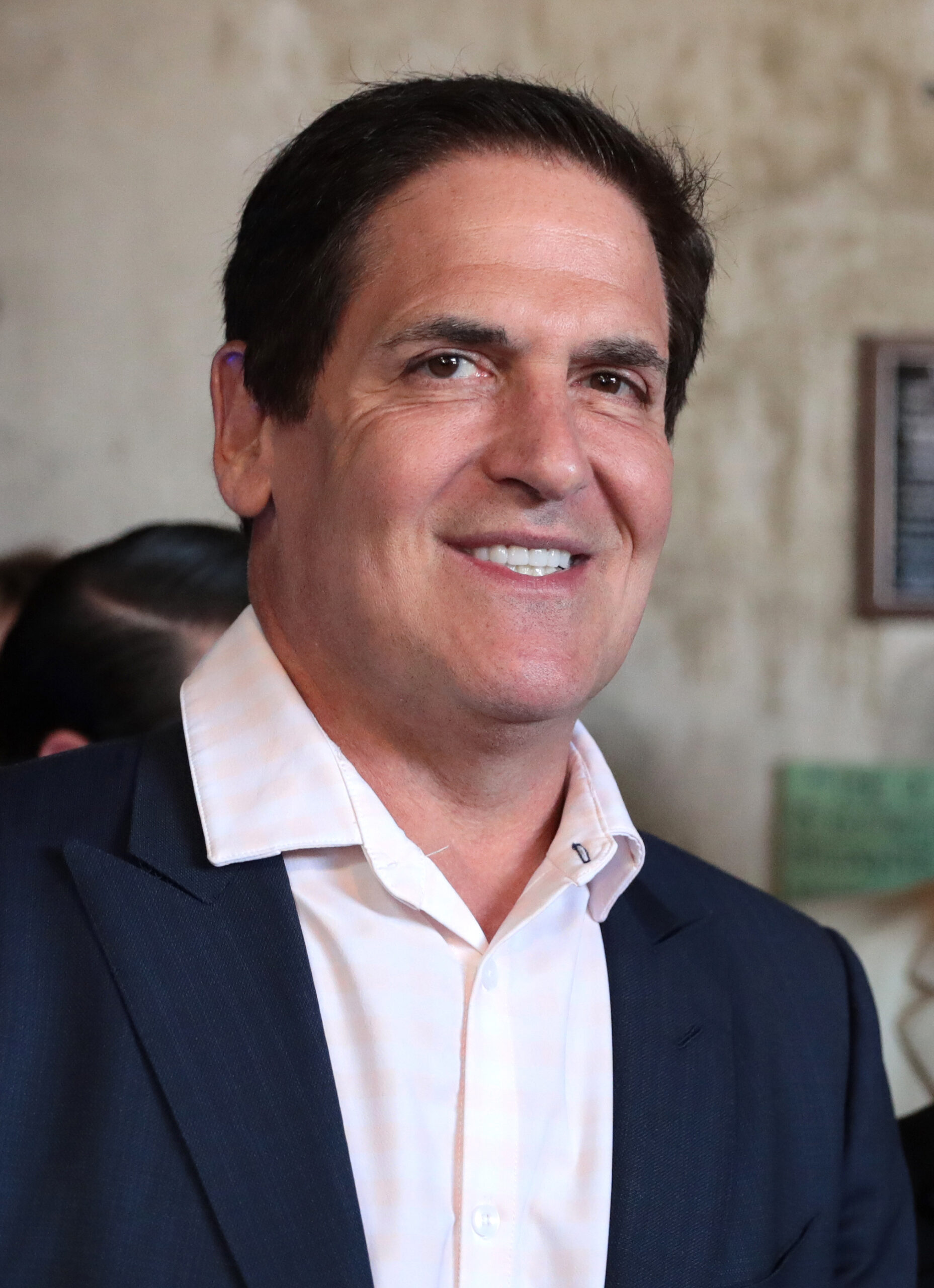
The journey from a polished manuscript to seeing your book shine on bestseller shelves is often paved with the crucial partnership of a literary agent. For many aspiring authors, securing an agent is a key step toward publication, acting as a bridge to the complex world of publishing houses. However, this pivotal relationship isn’t just about finding *an* agent; it’s about finding the *right* agent, one who is truly aligned with your vision and career aspirations.
Choosing the ideal literary agent can be a daunting task, especially for new writers. It’s an interview for both parties, where you assess if their professional approach and personal compatibility match your needs, just as they evaluate your potential. As the context wisely notes, an “offer call is like a job interview, but you and the offering agent are interviewing each other to determine if a business partnership is right for you.”
To ensure you make an informed decision and find an agent who can genuinely champion your work, preparation is paramount. Before you even head into that crucial conversation, make sure you have your novel’s genre confirmed, your elevator pitch polished, and all necessary documents compiled. Most importantly, as advised, “Don’t just rely on your memory; make sure you write down all the questions you want to ask, or you may not get another chance!” These questions are designed to empower you, offering a clear path to understanding if a prospective agent is the best fit for your literary future.

1. **Agent’s Experience & Track Record: How many clients have you represented, and what is your experience as an agent, including recent sales figures?**
Understanding an agent’s background and professional journey is fundamental to gauging their industry experience. This isn’t just about a raw number of clients; it’s about their history and evolution within the publishing world. Asking how they became an agent and what their experience entails provides valuable insight into their foundational knowledge and their ability to navigate the ever-changing landscape of book deals and literary trends.
Delving into their work background helps you understand their approach. You might discover if they have a flair for storytelling themselves, or perhaps a special talent in marketing that could significantly benefit your work. The context reminds us that understanding “how he handles success and disappointment” can be quite revealing, offering a glimpse into their resilience and professional temperament.
Equally important are their recent sales figures. While confidentiality is key, agents should be able to discuss their track record generally. The context suggests that “Percentage is a better number to get than total number” because it provides a more accurate picture of their success rate relative to their time in the industry. For those who wish to verify, the context mentions that you “can countercheck these figures against sites like Publishers Marketplace if you want to check for reliability and honesty,” although this requires a separate subscription.

2. **Workload & Capacity: How many new clients do you usually take on per year, and is agenting your full-time job?**
An agent’s ability to dedicate sufficient time and attention to your manuscript and career is directly linked to their current workload and capacity. Knowing how many new clients they typically acquire each year offers a clear indication of how much time they will likely have to invest in your projects. This insight helps manage your expectations about their availability and responsiveness.
It is also critical to inquire whether agenting is their full-time occupation. While many talented individuals in the publishing industry balance multiple roles, including being authors themselves, understanding their primary focus is important. The context explicitly states, “If this is someone’s part-time job, then they probably won’t have as many sales as someone who does it full-time!” This isn’t necessarily a red flag, but it provides crucial context for their pace and output.
Many agents, for example, are also authors, which can offer a broader perspective on the writer’s journey. However, if an agent is currently immersed in their own project, they might be too preoccupied to provide the proper attention your book deserves. The goal is to ensure that their professional commitments align with your expectations for dedicated representation and consistent engagement.

3. **Editorial Approach & Vision: How hands-on are you editorially, what edits do you foresee for my manuscript, and what happens if we disagree editorially?**
This section is profoundly important, as an agent’s editorial process must seamlessly mesh with your working style and vision for your book. Agents vary significantly in their editorial involvement; some are deeply hands-on, offering extensive developmental feedback, while others prefer to connect you with an editor at a publishing house and focus solely on the business side. Knowing this upfront will set clear expectations for both your current manuscript and future projects.
When discussing editorial needs, avoid general inquiries. Instead, ask for specific examples of what they feel works well and what areas require improvement. The context advises, “Instead, ask for specific examples of what they feel you did well or did not do well.” Inquire about the extent of work they foresee in terms of editing and rewriting, asking for specific examples of changes they anticipate. This will give you a clear idea of the time commitment required on your part and help you gauge their expertise in developmental and structural editing.
Crucially, you need to understand how disagreements are handled. What is the process if you don’t see eye-to-eye on editorial suggestions, and who ultimately decides when the manuscript is ready for submission? A robust partnership involves open dialogue and mutual respect, and clarity on these points ensures a healthy working relationship. Moreover, the context issues a vital warning: “Will there ever be a case where you will request that I pay someone to edit my manuscript? If they say yes, run away. This question is here to weed out schmagents.” Legitimate agents or agencies cover such costs if a freelance editor is deemed necessary, never the author.
4. **Fit with Agent’s List & Preferences: Describe your ideal client, and how do you see my book fitting into your overall list and what you are looking to accomplish as an agent?**
This open-ended question is invaluable for determining compatibility beyond just the manuscript itself. Asking an agent to describe their ideal client helps you gauge their preferred working styles and author personalities. For instance, if an agent prefers working with authors who provide detailed outlines, and you primarily write “by the seat of your pants,” it’s essential to clarify whether either of you is willing to adjust your methods. This ensures that your working dynamics are aligned from the outset.
Furthermore, understanding how an agent envisions your book within their existing list of clients and what they aim to achieve as an agent offers critical insight. The context emphasizes asking “Why do you want to represent this? (The answer should be holistic about what they want their list to look like, as well as the market.)” This isn’t about seeking compliments; it’s about confirming that your core vision for the manuscript resonates deeply with them. You want to be on the same wavelength regarding what truly matters for your book.
Their response will reveal whether they are taking on projects purely for market fit, or if there’s a genuine passion that aligns with your work. Ideally, you want an agent who sees your book as a valuable addition to their portfolio and whose long-term aspirations align with your own. This alignment fosters a stronger, more committed partnership, built on shared enthusiasm and strategic goals.

5. **Communication Style & Expectations: What is your preferred method of communication, and what are your typical client response times?**
Effective communication is the bedrock of any successful professional relationship, and the author-agent dynamic is no exception. Understanding an agent’s preferred communication channels—whether email, phone calls, text messages, or video calls—is essential for establishing a smooth workflow. It allows you to align your preferred methods with theirs, ensuring that vital information flows efficiently between you.
The context stresses, “You want an agent who can communicate well—or who will let you know if their communication will be less frequent/consistent at certain points in time.” Clarity on typical response times for general questions, urgent requests, and manuscript feedback is crucial. This sets expectations and helps you understand the rhythm of their communication. Additionally, ask about the longest period you might go without hearing from them, and what steps you should take if you haven’t received a response within the expected timeframe.
If you have specific preferences or need certain accommodations regarding communication, now is the opportune moment to bring them up. For example, if you prefer periodic check-ins rather than daily updates, or if you need to use text messaging for quick queries, discuss these needs. An agent who is open and accommodating to your communication preferences signals a willingness to foster a supportive and productive partnership, ensuring you won’t be left wondering what’s happening months down the road.
6. **Submission Strategy & Timeline: What is your general timeline from signing to submission, what is your submission strategy (exclusives, rounds), and will you share the submission list with me?**
Once an agent agrees to represent you, the next critical phase is submission to publishers. Understanding the agent’s general timeline from signing the agreement to the actual submission process is vital for managing your expectations. Inquire about key timeline markers along the way, such as how long they anticipate the editorial revisions will take before the manuscript is truly submission-ready. This gives you a clear roadmap for the upcoming months.
Furthermore, it is imperative to discuss their submission strategy. Agents employ different methods, including exclusives (sending to one editor at a time), rolling submissions (sending to an initial list and adding more as rejections come in), or distinct rounds (sending to batches of editors without a deadline). As the context explains, “Any of these methods are valid, though will certainly produce different results,” impacting factors like the speed of responses and the potential for auctions. Understanding their chosen approach and its implications is key to feeling informed and in control.
Transparency regarding the submission list is another non-negotiable aspect. The context strongly recommends, “it’s important to get a list of who a book has been submitted to in the event that you part ways with your agent and want to query this manuscript with someone else.” This safeguard prevents potential nightmares of trying to track down submitted editors later. Additionally, ask if you will have any input on which editors or imprints they target, and what they typically include in a submission package, and whether they’ll share that with you prior to submission.

7. **Vision for the Manuscript: What did you enjoy about my book, and which publishers or imprints are you considering for this project?**
When an agent offers representation, it’s because something in your manuscript resonated with them. Asking what specific elements they enjoyed about your book helps clarify this connection. As the context notes, “This is not fishing for compliments, but it helps you to see what part of your work resonated with them.” This insight allows you to confirm that you are both on the same wavelength regarding the core strengths and unique appeal of your story.
Even if your manuscript still requires further revisions, a prospective agent should already have a general idea of where they envision your book in the market. Inquire which publishers or imprints they are considering for this project. Their response will reveal their ambition for your work – whether they aim for large, established publishing houses, or if they suggest smaller, independent presses that might be a better fit for your specific genre or niche. This helps you understand their strategic approach.
Most importantly, you need to “Check if their list meets your own goals.” Are your aspirations for your book aligned with theirs? Consider if your goals are non-negotiable or if you are open to deferring to their expertise. A shared vision for the book’s trajectory and ultimate home is crucial for a harmonious and productive partnership, ensuring that the agent is not just enthusiastic, but also strategically equipped to achieve the best outcome for your literary endeavor.
Building a Long-Term Partnership: Essential Questions on Submission Strategy, Career Development, and Agency Support
Moving beyond the initial manuscript, a successful author-agent relationship evolves into a strategic partnership for your entire career. The next set of questions focuses on ensuring your agent is not just enthusiastic about your current project, but also equipped to navigate the complexities of publishing, advocate for your long-term goals, and provide comprehensive support. This involves probing into the less glamorous, but equally vital, aspects of the business: what happens if a book doesn’t sell, how international rights are handled, and how your agent envisions your future as a writer.
These inquiries are designed to help you understand the depth of an agent’s commitment and their strategic thinking beyond a single book deal. They reveal whether an agent views you as a one-off project or a long-term investment, someone whose career they are genuinely invested in building and protecting. Preparing these questions will empower you to make an informed decision, securing an agent who will truly be your champion in the ever-evolving world of publishing.

8. **What happens if we don’t sell my book? (Revisions? New Project?)**
It is crucial to approach the author-agent relationship with realism. While optimism is essential, not every book becomes a bestseller, and sometimes even a well-written manuscript may not immediately secure a deal. This question, as the context points out, is not about being pessimistic, but about being pragmatic: “What happens if you can’t sell my project? No matter how confident an agent is in their ability to place your book, no one can guarantee a deal until an offer has been made.” Understanding an agent’s “Plan B” reveals much about their long-term commitment to you as an author, beyond a single book.
Inquire about their strategy if your manuscript doesn’t sell. Will they suggest further revisions? How many editors do they typically approach before considering a project exhausted? More importantly, will they be open to submitting a new project from you, or will their representation be tied solely to the unsellable manuscript? Knowing what happens if the first book doesn’t work out says a lot about how much you are seen as a long-term investment as opposed to the author of one great book.
Agents may have various approaches, such as suggesting a significant rewrite or pivoting to a completely different manuscript. The goal is to ensure that even in the face of disappointment, you have a clear path forward and a partner committed to your overarching career. A good agent will discuss these possibilities openly, showing a realistic yet supportive approach to your writing journey.
9. **What is your approach to international and subsidiary rights (foreign, film, audio, etc.)?**
In today’s globalized publishing landscape, a book’s potential extends far beyond its initial domestic release. “Gone are the days of distributing books only in one location,” the context notes, emphasizing the importance of considering your publishing deal as encompassing the world. Your agent will be responsible for negotiating these crucial subsidiary rights, which include foreign language translations, film and TV adaptations, and audio book deals.
It is vital to ask how the agency manages these rights. Are subsidiary rights handled in-house by a dedicated team, or are they outsourced to a sub-agent? If outsourced, clarify the agent’s involvement in that process and how closely they work with the sub-agent. You should also inquire about your own involvement: will you get the opportunity to speak with interested foreign editors, for example, or will you be able to turn down specific offers if you have strong reservations, especially concerning geopolitical considerations?
Additionally, discuss the commission percentages for subsidiary rights. While 20-25% is usually standard, confirming this upfront ensures transparency. Understanding their expertise in this complex area is essential, as the sale of foreign and dramatic rights can significantly impact your career and earnings, broadening your reach to a global audience and diverse media platforms.

10. **How do you envision my long-term career, and what is your approach to subsequent projects?**
Many authors seek an agent not just for one book, but for their entire writing career. This question probes into the agent’s long-term vision for you, asking: “How does the agent envision your career in the long-term? What are their hopes and dreams for you, and how do those hopes and dreams intersect with yours?” This helps determine if their aspirations align with your own and if they see you as a lasting creative partner.
Clarify their involvement in subsequent projects, especially if a book deal contracts you for multiple titles. Will they be involved in the following books, or primarily your editor? Inquire at what stage they prefer to see new projects – a pitch, a synopsis, a partial, or a full manuscript – and what happens if they don’t like a pitched idea. It is acceptable for an agent to veto a project if, for instance, a genre is currently unmarketable, but the reasoning should be sound and discussed openly.
Crucially, if you plan to write in different genres or categories (e.g., moving from YA to adult fiction, or romance to thriller), ask if they would represent that work. If not, understand how that would be handled, whether through a second agent within the agency or by seeking separate representation. Also, discuss their stance on self-publishing for some projects and whether they would negotiate a traditional publishing offer for a previously self-published work, including foreign rights.
Sharing a brief description of other works-in-progress or future intentions is also valuable. As the context suggests, asking, “How do you feel about their potential?” can reveal if the agent’s enthusiasm extends to your broader creative output. This comprehensive discussion ensures that your agent is committed to nurturing your diverse writing ambitions throughout your professional life.

11. **What is your agency’s internal structure, and who will be directly handling my work?**
The internal workings of a literary agency can significantly impact your experience as a client. It is important to ask about their structure, as “depending on where you land, you can either get one agent as your advocate or, in a more collaborative setting, the full force of a whole team behind you,” as recommended by Kim Perel. Understanding this structure helps set expectations for the level of support and resources available to you.
Specifically, confirm whether the agent you are speaking with will be the primary person handling your work, or if it will be delegated to someone else on their staff. If another person will primarily manage your projects, request a meeting with that individual to assess compatibility and expertise. This ensures you build a direct relationship with the person most involved in your day-to-day authorial journey.
Even if others are involved, ask how the offering agent intends to oversee your work. Will they remain actively engaged in a supervisory role, or will their involvement be minimal? A clear understanding of these dynamics will help you ascertain whether the agency provides a truly supportive and comprehensive environment for your literary career, ensuring consistent advocacy and guidance.

12. **How do you negotiate contracts, and what are the payment terms?**
Contract negotiation is one of an agent’s most critical functions, directly impacting your financial and creative rights. Inquire about their process for negotiating contracts and whether their agency employs a dedicated contracts person. If not, clarify who specifically handles this complex and crucial aspect of your book deal, as this expertise is vital to protecting your interests.
Ask about specific elements they prioritize in negotiations. The context suggests focusing on making your option clause as author-friendly as possible, retaining subsidiary rights where beneficial (questioning, for example, why a publisher would need “theme park rights”), and ensuring fair termination clauses. This demonstrates their diligence in securing the best possible terms for you, extending beyond just the advance.
Equally important are the payment terms. Inquire how you will receive payments: directly from the publisher with the agent taking their percentage (e.g., an 85/15 split), or if the agent first receives the full payment and then remits your share. If the latter, clarify the typical timeframe for them to process and make payments to you. This transparency around financial matters is fundamental for a trustworthy and professional relationship, ensuring you understand the flow of funds from publisher to author.

13. **How will you help me navigate difficult situations with publishers or the industry?**
Publishing can present challenges beyond simply selling a book. It is important to know how your agent will act as your advocate when issues arise. Inquire about their mediation approach if you disagree with a publisher’s vision for the book, such as jacket design, marketing strategy, or other elements of the publication plan. Heather Jackson advises asking, “What if I don’t agree with a publisher’s vision for the jacket or the marketing or some element of the plan or issue? How will you help me navigate that?”
Further, discuss their role if you experience a subpar working relationship with your publisher or editor. This could include issues like a lack of marketing effort, discriminatory treatment, or general unresponsiveness. The context highlights the importance of knowing “how your agent can support you during these kinds of situations, because it happens to a lot of people.” An agent’s proactive support in these scenarios is invaluable for protecting your well-being and career.
Additionally, explore scenarios where the publishing contract itself might need to be severed, either by the agent or by you due to personal circumstances or irreconcilable issues with the publisher. Understanding the process for terminating such agreements ensures you know your options and have a trusted professional to guide you through potentially difficult contractual separations. This foresight establishes the agent as a comprehensive partner, ready to support you through all phases of your publishing journey.

14. **What is your process for terminating the agent-client relationship?**
While every author hopes for a lasting partnership, it is prudent to understand the process for ending the agent-client relationship should circumstances change. Erin Harris suggests asking, “If our professional relationship doesn’t work out (which I hope wouldn’t be the case if we chose to work together!), can you describe the process of severing professional ties?” This question establishes transparency and prepares you for potential future scenarios.
Inquire about specific details regarding contract termination. Different agency contracts have varying clauses, such as potential restrictions on querying a new agent for a few months after leaving. While a wait time of two to three months is generally considered normal, question any longer periods to understand the justification. Knowing these stipulations upfront prevents complications if you need to seek new representation for the same manuscript.
Additionally, ask if the agent has ever downsized their client roster and under what circumstances they might do so. Reasons can vary from personal life changes to professional transitions, such as moving to a new agency. Being aware of this possibility, though not common, helps authors understand the dynamics of agent representation and reinforces the need for clear communication throughout the partnership.

15. **How will you champion me as a marginalized writer, and how do you address industry challenges?**
For marginalized authors, specific questions about representation and advocacy are paramount. The publishing industry has a history of not treating marginalized authors with the same care as more privileged counterparts, making it crucial to ask, “How will you champion me, as a marginalized person, and ensure I’m treated fairly?” An agent’s willingness to directly address systemic issues, rather than dismiss them, indicates a genuine commitment to equitable representation.
Discuss their approach to editorial feedback concerning your identity. The context advises that an agent should generally not provide such feedback unless they share your specific identity, and should strongly advocate for you if an editor attempts to do so. Inquire about the diversity of their existing client list, asking about the estimated percentage of marginalized clients, including those with specific identities that resonate with yours, as a litmus test for their inclusive practices.
Beyond personal advocacy, extend your inquiry to broader industry challenges. Ask about the agency’s policy on AI-generated content, as supporting generative AI usage can be a significant red flag for authors. Similarly, inquire about their stance on book bans and how the agency supports authors whose books are challenged in schools and libraries. These questions reveal their commitment to intellectual freedom and authorial rights.
Finally, ask about their strategy for handling social media crises, a common occurrence in the digital age. This encompasses understanding if they have ever asked a client to delete social media content and how they navigate public relations challenges. A comprehensive answer will assure you that your agent is not only a literary advocate but also a steadfast defender of your work and reputation within the complex contemporary publishing landscape.
**Choosing Your Champion: A Partnership for the Future**
The journey to publication is a marathon, not a sprint, and securing the right literary agent is akin to finding an invaluable coach and guide. By asking these critical questions, you empower yourself with the knowledge needed to forge a partnership that is built on trust, transparency, and a shared vision for your literary future. Remember, this isn’t just about selling a single book; it’s about building a sustainable and successful career, one where your voice is heard, valued, and strategically championed.
Your agent will be your closest ally in the often-challenging publishing world, negotiating on your behalf, navigating complex contracts, and standing by you through both successes and setbacks. The investment of time and thoughtful inquiry during these initial conversations will undoubtedly pay dividends, ensuring you embark on this exciting journey with confidence, knowing you have the best possible advocate by your side. Go forth, equipped with clarity and purpose, and find the agent who is truly ready to believe in your words, just as much as you do.






